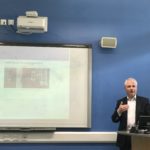Concerns about the cosy relationship between politics and business in the UK have re-surfaced in recent weeks through the exposure of an alleged ‘cash for influence’ deal involving a government minister and a property developer. In this post, Joseph Sinclair,…
Blog Archives
The Property Developer and the Housing Secretary: Does the Jenrick Affair demonstrate there is one law for the government’s friends and another for everyone else?
The governance of the UK’s response to corruption: who is in charge?

Robert Barrington, Professor of Anti-Corruption Practice at the Centre for the Study of Corruption, summarises two new papers in the CSC Discussion Paper series that address the question of how, and how well, the UK approaches the governance of its anti-corruption response.…
As Cricket explores new frontiers, those who run the game must do more to protect it from Corruption

Billy Pratt, who is currently taking the Masters in Corruption & Governance at the Centre for the Study of Corruption, reflects on how the changing nature of broadcasting professional sport affects match-fixing in cricket and the corruption risks posed by…
CORRUPTION: When the Cheese Moved
Should I do a Masters in Corruption?

Robert Barrington, Professor of Anti-Corruption Practice at the University of Sussex’s Centre for the Study of Corruption (CSC), looks at the arguments for and against doing a Masters degree in Corruption at this unusual time of a global pandemic and…
Brexit is here and the EU’s procurement standards will no longer apply: what does this mean for Britain’s public procurement?

Alvaro Quintero Casillas, who is currently taking the Masters in Corruption & Governance at the Centre for the Study of Corruption, looks at the UK’s options for public procurement reform post-Brexit, drawing on models from South Korea and Ukraine to…
The struggle against corruption in public life in modern Britain

Historian Ian Cawood, Associate Professor in British Political & Religious History at the University of Stirling, explores the findings of a conference funded by the British Academy which looked at why the quality of governance in the UK seemed to…
Corruption in government purchases during pandemic
In pandemics and other emergencies, public procurement is even more exposed to corruption risks than is normally the case. In this blog post, CSC PhD Researcher Irasema Guzmán explains the risks and discusses key cases of emergency healthcare procurement being…
The Bribery Act 2010: Wider Impacts?
Joseph Sinclair, a lawyer currently enrolled on the Masters in Corruption & Governance, evaluates the success of the Bribery Act on its tenth anniversary by looking at the issues of corporate culture and international impact. The UK Bribery Act (UKBA)…




Recent Comments